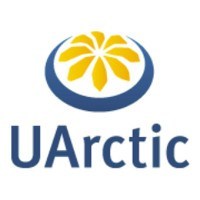Statement on Indigenous Knowledge Systems and Knowledge Co-Production in the Arctic
Prepared by the participants of the Arctic Resilience Forum-2020 Sessions "Working Together in the Arctic - Respecting Indigenous Engagement, Equity and Sustainability of Knowledge Systems to Support Resilience in the Arctic" (December 16, 2020)
Session co-organizers: SDWG, Harvard University Arctic Initative, Arctic Athabascan Council and IASSA with the help of the ARCTICenter
Session introductory video link: https://www.belfercenter.org/event/arctic-resilience-forum-working-together-arctic-respecting-indigenous-engagement-equity-and#!resources-
Contributors: Evon Peter (GCI/UAF), Andrey Petrov (IASSA), Gunn-Britt Retter (Saami Council), Vyacheslav Shadrin (RAIPON-Yakutia), Norma Shorty (AAC), Colleen Strawhacker (NSF), and Tatiana Degai (ARCTICenter).
Arctic Indigenous Peoples have sustained their cultures and livelihoods for millennia, while being stewards of local social-ecological systems. Thus, resilience in the Arctic should be understood and accomplished in the context of Indigenous epistemologies and through collaboration between Indigenous knowledge systems and Western science. Indigenous knowledge has the potential to provide a foundation for individual and collective resilience of past, present, and future generations of Arctic Indigenous Peoples, and empower communities to make self-determined choices and define their own paths to sustainable development.
Indigenous knowledge represents stand-alone, comprehensive, holistic and self-sufficient systems of knowing rooted into the multigenerational wisdom of the Indigenous Peoples stemming from millennia-long experiences of living on the land, ice and sea. Indigenous knowledge systems have their own ontologies, epistemologies, and methodologies, and possess internal validation principles and processes. They embed within themselves the experiences of many generations of Indigenous communities and reflect the needs and aspirations of the Indigenous Peoples in respect to their livelihoods and cultures. Importantly, the Indigenous languages present a worldview that’s held within the Indigenous knowledge systems. The loss of the Indigenous languages leads to the loss of knowledge and thus of our shared ability to understand and address urgent challenges, such as climate change and health. Indigenous knowledge is tied to ownership, to the spirit, to seen and unseen, to known and unknown. Indigenous ways of learning and teaching are based on the holistic understanding of the universe. Contrary to the Western education system, spirituality and the belief that everything has a spirit- is an important component of individual and collective constructs and the Indigenous way of life.
A colonial past that included inequities perpetuated by science and scientists working in the Arctic, in particular the lack of respect and understanding of the Indigenous ways of knowing, disrupted thriving Indigenous knowledge systems and undermined their sustainability. In order to ensure the vitality of these systems, collaborative efforts by Western and Indigenous scholars under the guidance of the Indigenous knowledge holders must become a priority, and knowledge co-production must be seen as central for Arctic research. While working with Indigenous communities, one has to be mindful of the systemic discrimination against them and allow time and channel resources so that these communities can reconcile with their histories and languages, which were disrupted due to long spells of historic and ongoing colonization.
The lack of equitable engagement with Indigenous knowledge in the Arctic leads to distorted and unscientific understandings of the nature and social systems of the Arctic. Responses to the challenges of climate change and environmental degradation based exclusively on Western land policies and science, can exacerbate, not solve the emerging problems, such as massive land use changes driven by renewable energy production, which are impacting the traditional livelihoods of the Indigenous reindeer herders. Thus, academic research should be viewed as supporting, and not supplanting, the Indigenous knowledge and the institutions of learning need to do a better job at supporting these holders of knowledge
Indigenous communities and knowledge holders are critical to advance our shared understanding of sustainability and resilience in the Arctic region. Therefore, to foster resilience in Arctic social-ecological systems we must attain equity and sustainability of the Indigenous knowledge systems as they engage with Western science and policy. This could be achieved through a collaborative process based on mutual understanding, trust, respect and decolonization that can guide knowledge co-production. This journey starts with respecting Indigenous knowledge systems and holders, followed by equitable investment in these knowledge systems that would lead to true co-production and will result in co-produced policy solutions for resilience, sustainability and thrivability of Arctic social-ecological systems. This co-production needs to be mindful and respectful of the context of colonization and assimilation alongside Indigenization and self-determination. The Indigenous communities, in their turn, will also benefit from collaborating within themselves to help each other heal the traumas related to past colonization policies while sharing wisdom and further developing their knowledge systems. The process of healing includes time for all to reconcile with their own history of oppression and ignorance in order to continue the empowerment of Arctic Indigenous Peoples.
Contact Information
IASSA Secretariat
Ilisimatusarfik
Manutooq 1
3905 Nuussuaq
Greenland
Phone: 00299 38 56 00
Website: www.iassa.org




